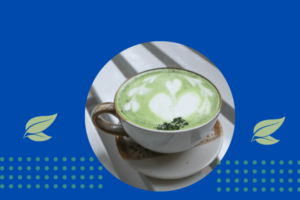Cinnamon, a spice hailing from the tropical lands of Asia, has been revered since ancient times, not only for its captivating fragrance and unmistakable flavor but also for its extensive repertoire of medicinal benefits.
Legend has it that Chinese emperors valued cinnamon so much that they were willing to pay exorbitant tributes or embark on dangerous expeditions to ensure a constant supply of this precious spice.
In ancient Rome, cinnamon was so treasured that it was reserved for religious rituals and sacrifice ceremonies. Valued for its aroma and preservative properties, in many instances, cinnamon was deemed more valuable than gold.

But beyond tales and legends lies the undeniable reality of cinnamon’s role as a vital force in traditional medicine and culinary arts.
And while powdered cinnamon is widely recognized, cinnamon tea, a gentle yet potent infusion of this spice, has been a source of comfort and healing in many cultures around the world.
Today, we stand on the cusp of rediscovering and appreciating the wealth this simple beverage can offer.
As we delve into this article, we will journey through the rich and diverse history of cinnamon tea, exploring its benefits, unveiling its secrets, and celebrating its eternal presence as a guardian of human health and well-being.
The Hidden Power: How a Simple Tea Can Revolutionize Your Health
With anti-inflammatory and antioxidant properties, Cinnamon Tea can also help reduce the risk of heart diseases while aiding in controlling bad cholesterol.
Mystery Revealed: What Science Says About Cinnamon Tea
Research shows that cinnamon can improve insulin sensitivity, making it an ally in the fight against type 2 diabetes. Additionally, its compounds may possess anticancer properties.
The Alchemy of Well-being: Understanding the Active Components in Cinnamon Tea
Beyond cinnamaldehyde, cinnamon is rich in catechins, potent antioxidants that assist in the fight against cellular aging and protection against chronic diseases.
Flavor and Science: Why this tea is more than just a comforting drink
The eugenols in cinnamon have analgesic properties and can help alleviate pain. This, coupled with cinnamon’s relaxing aroma, makes the tea a truly therapeutic beverage.
The Ritual of Preparation: How to Extract the Best from Each Sip?
Steeping cinnamon in boiling water not only releases its distinctive flavor but also allows for the maximum extraction of its beneficial compounds. Adding a touch of honey or lemon can enhance the effects.
Beyond the Palate: Cinnamon Tea Benefits That Will Surprise You
Cinnamon Tea has also shown antibacterial and antifungal effects, making it useful against infections.
Ancient Secrets, Modern Health: Rediscovering an Age-old Tradition
Today, the tea is used in both cuisine and modern medicine, with ongoing studies on its potential neuroprotective effects.
Challenging Myths: Truths and Fictions About Cinnamon Tea
While Cinnamon Tea offers many benefits, it’s essential to consume it in moderation, as excessive intake can be harmful due to its coumarin content.
The Global Connection: How Different Cultures Value Cinnamon Tea
In Latin American cultures, the tea is often combined with cloves and served as a festive beverage during Christmas. In the Middle East, it’s added to coffee for an extra flavor.
Harmony in the Cup: Balancing Flavor and Benefits in One Beverage
The right balance of cinnamon and water, perhaps with a touch of other natural ingredients, creates a symphony of flavor and health.
Testimonies and Transformations: Accounts on the Impact of Cinnamon Tea
Many claim to feel more energized, experience better digestion, and even have a more peaceful sleep after incorporating Cinnamon Tea into their routines.
At the Forefront of Health: How Cinnamon Tea Might Shape the Future of Well-being
With more research underway on its potential benefits, Cinnamon Tea is positioning itself as one of the most promising health beverages for the future.
Recipes and Variations: Exploring New Ways to Savor and Benefit from Cinnamon Tea
From simple infusions to combinations with other herbs and spices, Cinnamon Tea is versatile and can be tailored to individual tastes.
Twelve Benefits of Cinnamon Tea
- Blood Sugar Regulation: Cinnamon can help improve insulin sensitivity, meaning it can assist insulin in its job of transporting sugar to cells, thereby lowering blood sugar levels.
- Antioxidant Properties: Cinnamon is loaded with powerful antioxidants, such as polyphenols, that protect the body from free radical damage.
- Anti-inflammatory Properties: While inflammation in the body can be beneficial as a response to infections or injuries, chronic inflammation can be harmful. Cinnamon contains compounds with anti-inflammatory properties.
- Reduced Risk of Heart Diseases: Cinnamon has been linked to reduced levels of total cholesterol, LDL, and triglycerides while keeping HDL (the “good” cholesterol) stable.
- Antifungal and Antibacterial Properties: Cinnamon’s essential oil has been used in some cultures to treat respiratory and fungal infections. Cinnamon has also been effective against certain bacteria, including Listeria and Salmonella.
- Brain Health: Animal studies suggest that compounds in cinnamon might be protective against neurodegenerative diseases like Alzheimer’s and Parkinson’s.
- Cancer Prevention: In lab tests, cinnamon extracts displayed antitumor activity, indicating potential in preventing cancer cell growth.
- Antiviral Benefits: Some research suggests cinnamon might combat the flu virus, making it a potential natural weapon against viral diseases.
- Oral Health Promotion: Due to its antimicrobial properties, cinnamon can effectively guard against mouth bacteria, preventing dental issues and bad breath.
- Aid in Digestion: Cinnamon is known to alleviate symptoms of indigestion, gas, and bloating.
- Analgesic Properties: Cinnamon can act as a natural pain reliever, especially in cases of abdominal or menstrual pain.
- Skin Protection: Owing to its antimicrobial and anti-inflammatory properties, cinnamon can benefit skin health, reducing irritations and rashes.
It’s crucial to note that while cinnamon tea offers many health benefits, it should be consumed in moderation.
Additionally, there are different types of cinnamon, with Ceylon (known as “true cinnamon”) being the most recommended for regular consumption. In contrast, the Cassia variety contains more coumarin, a compound that can be harmful in large amounts.
Conclusion
It’s advisable to consult a health professional before making significant dietary changes or using cinnamon tea as a treatment for specific conditions.
In our journey through history’s pages and scientific revelations, we’ve discovered that cinnamon tea is not just a beverage; it’s a legacy.
From ancient civilizations enticed by its intoxicating aroma to modern laboratories confirming its healing properties, cinnamon has remained steadfast in its aura of mystery and wonder.
Its presence has transcended borders, cultures, and ages, serving both as a sensory indulgence and a remedy.
Today’s rediscovery of cinnamon tea as a health elixir reminds us of our ancestors’ wisdom, who intuitively recognized and valued nature’s gifts.
Today, with the backing of science, we have a clearer understanding of how and why cinnamon tea can be so beneficial, but it’s still a personal experience.
Recognizing the duality of cinnamon tea – its indulgent flavor and healing properties – we are reminded of the harmony nature can offer.
Let’s cherish and relish this beverage, respecting its legacy while benefiting from its numerous properties.



